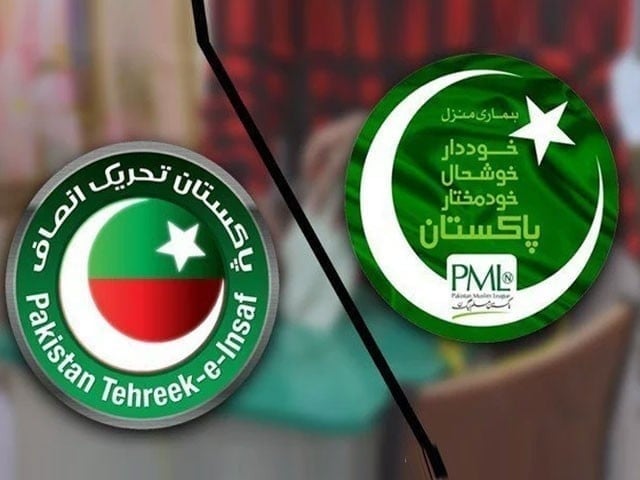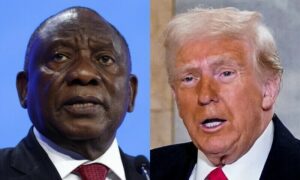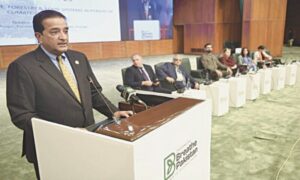ISLAMABAD’:
On the first anniversary of the February 8 elections on Saturday (today), the Pakistan Muslim League-Nawaz (PML-N)-led government is celebrating a year of “stability and economic recovery,” while the opposition, particularly the Pakistan Tehreek-e-Insaf (PTI), is observing it as the “biggest poll theft day”.
On the one hand, members of the ruling coalition are terming February 8 as a “day of progress and development,” saying that key economic indicators have improved, the country has moved past last year’s financial uncertainty and is now on a path toward sustained growth.
The opposition parties, on the other, have declared February 8 as ‘black day’, alleging that the PTI’s mandate was stolen a year ago, a ‘non-elected’ government was installed by manipulating the results and the general public is fast losing hope because of the ongoing crackdown against the people.
Though Information Minister Ataullah Tarar didn’t respond to text message, seeking the government’s version, Pakistan Peoples Party’s (PPP) Punjab Governor Saleem Haider sparked a controversy by claiming that Tarar didn’t win the election against PPP Chairman Bilawal Bhutto Zardari.
“This is guaranteed that Tarar didn’t win elections,” he said, speaking to a private media outlet on the eve of election anniversary. He added that he was not sure if Bilawal had won or lost the election last year but he sure knew that Tarar had lost it.
The governor didn’t mince words on rigging, saying candidates winning from his constituency in Attock as well as the whole of Rawalpindi and many in Karachi won via form 47 – which is prepared by tallying results obtained from Form 45s. “Whole Pakistan is on Form 47,” Haider went on to say.
To a question if the mandate belonged to the PTI, Haider said that it was ROs’ election, before adding that those who won could tell how they managed to win elections as he himself had lost election from his constituency. He said that all those who manipulated last year’s elections must be taken to task.
Meanwhile, PTI Information Secretary Sheikh Waqas Akram released a video message, saying that party founder Imran Khan and other leaders and workers faced the worst kind of oppression since the alleged ‘regime change’ operation, which was intensified months before the general elections and still going on.
On February 8, he continued, the PTI would observe a “black day”, and forcefully raise their voice against the alleged “mandate theft”. While announcing that the PTI would hold a public rally in Swabi, Akram said that the people would hold protests in Punjab, Sindh and Balochistan.
In response, Defence Minister Khawaja Asif posted on X that the PTI was holding a rally against the rigging in the province where it had won, saying that taxpayers money was being spent on the party’s rally in Swabi. He threw down the gauntlet to the PTI to hold rallies in Punjab, Sindh and Balochistan.
Nevertheless, a year after the elections, experts said that Pakistan’s economy demonstrated a continued improvement in first half of the financial year 2025, adding that it built upon the stabilisation achieved in FY2024, when GDP expanded by 2.5% after the previous year’s contraction.
Despite the rigging allegations, the experts believed that inflation substantially declined to 7.2% from 28.8% a year ago, supported by easing of global prices, a stable exchange rate, and targeted government policies.
Policy reforms, monetary easing, and fiscal consolidation further strengthened the foundation for sustainable economic momentum, they said, adding that the current account balance posted a surplus of $1.21 billion in July-December FY2025.
Record-high remittance inflows and strong export performance offset the increasing import bill. In addition, the experts said, foreign direct investment (FDI) surged by 20%, driven by investments in the power and oil sectors.
They added that foreign exchange reserves were enough to cover over two months of imports, supported by International Monetary Fund (IMF) disbursements and international financial assistance. They also said that rupee appreciated by 1.2% — an indicative of favourable external developments.
The external sector, the economic experts maintained, saw a marked improvement in remittance inflows along with resilient export performance, contributing to a substantial improvement in the current account balance.
In first quarter of FY2025, they said, GDP growth was estimated at 0.9% compared to 2.3% in the same quarter of FY2024 on the back of 1.15% growth in agriculture, and 1.43% growth in services sectors. In the industrial sector, they continued, the growth remained negative.
However, they said, the contraction slowed down to -1.03% from -4.43% last year, signalling a gradual improvement. They said the industrial sector experienced a contraction of 1.7% in FY2024, because of stabilisation measures, tight monetary policy stance, high inflation rates, and an unstable exchange rate.
Large-scale manufacturing (LSM) sustained growth of 1.0% in FY2024, they said, adding that in Q1-FY2025, the industrial sector contracted by 1.03%, showing improvement compared to a substantial contraction of 4.43% in the same period last year.
This recovery was largely attributed to growth in manufacturing, as well as electricity, gas, and water supply. However, downside risks persist in mining and quarrying, which declined by 6.49%, and construction, which contracted significantly by 14.91%.
During July-November of FY2025, the LSM sector experienced a slight decline of 1.25%, compared to the contraction of 1.9% recorded during the same period last year. Remittances witnessed an impressive growth of 32.8% to reach $17.8 billion during H1 FY2025 compared to the same period in FY2024.
This significant increase was fuelled by multiple factors, including increased migration, exchange rate stability, and targeted government incentives. The FDI Inflows demonstrated a marked improvement of 20% in Jul-Dec FY2025, reaching $1.329 billion, up from $1.11 billion last year.
Though the government attributes this turnaround to its economic policies, reduced interest rates, and increased foreign investments, the opposition remains critical of the electoral process that brought the current administration to power.
The PTI and its allies have dismissed the government’s claims, arguing that the elections were manipulated and that the results do not reflect the will of the people. The party has announced protests and events across the country to mark Feb 8 as “poll theft day,” accusing the ruling coalition of benefiting from an unfair electoral process.
- Desk Reporthttps://foresightmags.com/author/admin/











